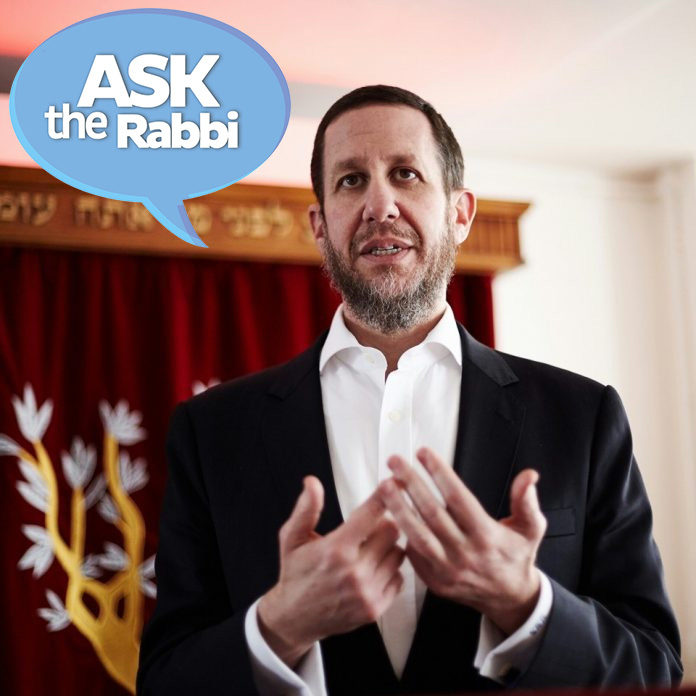
Dear Rabbi
What is the Jewish view on abortion? My sister is pregnant and was recently informed that her baby will be severely disabled with limited life expectancy. As a mother of two young ones, this is distressing her terribly because she doesn’t know how she will cope. Is she allowed to abort the baby?
Liora
Dear Liora
I am terribly sorry to hear about your sister’s plight. Let me begin with the facts. Abortion per se is forbidden in Jewish law. Because the foetus is considered to be a viable entity, terminating it is tantamount to murder. However, there is also discussion in Jewish law about one who is threatening the life of another. When A is chasing B to kill him, then C can step in and do everything necessary to stop A even if it has to come to killing him. Similarly, when the baby in the mother’s womb is threatening the mother’s life, then it is unquestionable that one can terminate the foetus in order to save the mother. In your sister’s case, there are a broad range of issues to be taken into consideration such as the way the baby is “threatening” the emotional wellbeing of its mother, the actual life expectancy of the baby and so forth. To that end, if it is something she is seriously considering, which would reflect her emotional state, and she is looking to do the right thing, then a competent Rabbi should be consulted to discuss detail – as there can well be scope for leniency in the circumstances. I do hope and pray everything works out for the best and that you all have the strength to pull through.
Dear Rabbi
What are the rules for sitting shiva for a stepparent?
Sarah
Dear Sarah
In order to answer this question one has to consider the significance of sitting shiva. Mourning is obligatory for the loss of immediate biological family. In the case of parents this is extended for a twelve month period in keeping with the fifth of the Ten Commandments and in appreciation of the fact that they, after all, brought you into this world.
This argument then would not typically extend to a stepparent. However Jewish law insists that one is obligated to respect a stepparent as well, even if only as an extension of the biological parent to whom the stepparent is married. While this would imply that once the biological parent passes away, the obligation is no longer binding, nonetheless Jewish law is clear that the proper thing is to respect a stepparent even after the death of the biological parent. This then would suggest that there is a separate basic respect owed to a stepparent who (a) brought comfort to your biological parent and (b) often will have fulfilled the other quality in parenting which is helping to raise the child even if not having given birth to them. It should be noted as well, that in the Torah we find reference to the fact that Aharon’s sons are also referred to as Moses’ children, because he taught them Torah. By definition, he was involved in their upbringing.
In the context of mourning, while it is clear that an obligation to mourn is not binding, as this is restricted to immediate family, nevertheless, the feelings of mourning are not restricted. Even as there is a general reluctance among halachists to carry over traditional ritual forms of mourning into unassigned areas, if you feel strongly enough that you want to demonstrate mourning for the loss of a stepparent that had a real impact in your life, by sitting shiva, then you may go ahead and do so. The same would apply to saying kaddish as well.
Dear Rabbi
My father has been lying terminally ill and a Rabbi recently told me to stop praying for his recovery. This really shook me. He said I was better off praying for mercy that my father die quickly and painlessly. How do we know when to pray for mercy instead of healing?
Chaya
Dear Chaya
There is a concept in halacha and more so in Kabbalah about what constitutes a “point of no return.” Once the brain has stopped functioning, medical science will declare the person dead. Even as some halachists will argue that so long as the heart beats the individual is rendered “alive” vis a vis switching off the machine etc. nonetheless the likelihood of the brain kick starting is nil – the soul is clearly in the process of departing the body and as such, continuing to pray, which can sometimes have the desired effect of keeping the body “going” is unfair to the soul and “nature” should, at that point be allowed to take its course.
Against that backdrop one should however always bear in mind that even as doctors, in numerous other instances, declare that the person is not going to make it, or has three months etc. there is a famous Talmudic dictum: “Even as the sword is pressed up against your neck do not give up on Divine mercy.” Just ask the young man whose wife was told by the doctor to go home and prepare the kids for the worst. I was there. That was seven years ago. That father plays happily with his kids today, thank G-d. Or the elderly gentleman whose daughter called me in distress because he was given three weeks and that would have clashed with a family chupah. I told her that the Torah gives license to a doctor to heal, not condemn. That wedding happened several years ago.









